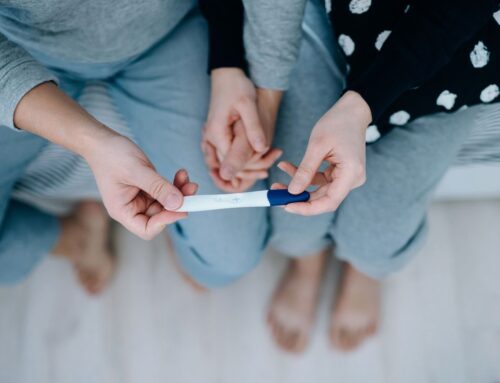Pregnancy can often bring on intense experience of many emotions. Some expectant mothers (especially first-time mothers) begin idealizing what labor and delivery might be like. They often envision a smooth birthing experience, delivering naturally with their partner by their side. They picture moments of skin-to-skin contact, bonding between mother and child. But what about the moments that do not go according to plan? What happens when we do not have our ideal birth, and how can we cope? Keep reading to learn more about what it means to grieve a birth experience and how you can manage it.
What can Trigger Grief?
Several factors can cause this, such as:
- Unexpected complications
- Having an emergency c-section
- Type of responses received from loved ones
- Insensitivity from healthcare providers and staff
- Other moments idealized by the mother that did not come to fruition
How Might the Process Look?
Just as multiple factors can cause sadness, there are numerous ways to experience it. It is important to remember that there is no “right way” to grieve; this process does not have a strict timeline or order. One mother may begin to experience feelings of loss or sadness immediately after birth. Or you may experience delayed sadness, only realizing a sense of loss weeks or months after delivery. Some women may be unsure of how they feel altogether. The feelings of trauma mixed in with the joy of having a child can create a sense of confusion.
How can I cope with my feelings?
Be honest with yourself: Understand that your emotions are legitimate. You have every right to mourn everything you hoped and work for during your delivery. You do not have to force yourself to be “grateful” for a traumatic birth. Acknowledging your hurt is the first step towards healing.
Be kind to yourself: Know that you did all you could to have a good birthing experience. You are not at fault if you had to have a c-section, needed to deliver in a hospital instead of your home, or were not able to immediately hold your child. Whatever the case may be, these factors were out of your control. These factors do not imply anything about you or your body as a woman and a mother.
Do not be afraid to seek help: You are not alone in your pain. You do not have to process it alone, either. Strongly consider seeking additional support to work through your feelings. This support can come in the form of counseling, therapy, and support groups. It is essential to seek help if you believe you need it and remain aware of Postpartum Depression signs.
Accept grieving as an ongoing process: Mourning an ideal birth is not always a one-time process. Coping with your feelings may need to happen over an extended period. Even if you believe you have put the experience behind you, do not feel bad if you feel sadness in the years or months to come. Like any other event associated with loss or trauma, specific triggers can cause those feelings to emerge. Please know that you are not alone, and you will get through this.
Want to learn more? Check out these blog posts:
https://pregnancyadoptionoptions.com/support-groups-while-pregnant-2/
https://pregnancyadoptionoptions.com/postpartum-depression-in-new-young-mothers/





